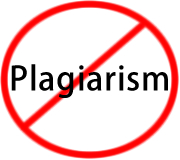
Editorial Policies
Manuscripts are accepted with the understanding that the authors have not violated any ethical practice followed in preparation and publication of manuscripts. The list practices that are considered unethical are given in the journal website. Author/s is/are responsible for all the statements made in their work and should be willing to defend them publicly, if challenged. Authors should prepare their manuscripts submitted to the journal exactly according to the instructions given. Manuscripts which do not follow the format and style of the journal may be returned to the authors for revision or rejected. The journal reserves the right to make any further formal changes and language corrections necessary in a manuscript accepted for publication. Manuscripts and figures are not returned to the authors, not even upon rejection of the paper.
Publication Ethics and Publication Malpractice Statement
IJREAT Publication Ethics and Publication Malpractice Statement is based, in large part, on the guidelines and standards developed by the Committee on Publication Ethics. The relevant duties and expectations of authors, reviewers, and editors of the journal are set out below.
RESPONSIBILITIES OF AUTHORS
By submitting a manuscript to IJREAT, the author(s) warrant that the manuscript is their own, original work and that it has neither been published previously nor is currently being considered for publication elsewhere. They also warrant that the sources of any ideas and/or words in the manuscript that are not their own have been properly attributed through appropriate citations and/or quotes.
An author should not normally publish manuscripts describing essentially the same research in multiple journals or publication venues. Such redundant publication is generally considered to constitute unethical publishing behaviour, and if discovered may result in a manuscript under consideration being rejected, or a published article being retracted.
Authors of manuscripts reporting on original research should present an accurate account of the work performed, accompanied by an objective discussion of its significance. Underlying data should be represented accurately in the manuscript. The manuscript should contain sufficient detail and references to permit others to replicate the work. The fabrication of results and the making of fraudulent or knowingly inaccurate statements constitute unethical behaviour and may be cause for rejection or retraction of a manuscript or published article.
Where the manuscript reports on commercial software, hardware, or other products, authors must include a declaration at the beginning of the manuscript in which they must either state that no conflict of interest exists or describe the nature of any potential conflict. All sources of financial support for the research should also be disclosed in the manuscript.
The author(s) of a manuscript IJREAT that if the manuscript is accepted for publication in IJREAT, the published article will be copyrighted using a Creative Commons “Attribution-Non Commercial-Share Alike” license. This license allows the author(s) to retain the copyright, but also allows others to freely copy, distribute, and display the copyrighted work, and derivative works based upon it, under certain specified conditions.
Authors are responsible for obtaining written permission to include any images or artwork for which they do not hold copyright in their articles, or to adapt any such images or artwork for inclusion in their articles. The copyright holder must be made explicitly aware that the image(s) or artwork will be made freely available online as part of the article under a Creative Commons “Attribution-Non Commercial-Share Alike” license.
The authors’ names should be listed on the article in order of their contribution to the article, and all authors take responsibility for their own contributions. Only those individuals who have made a substantive contribution should be listed as authors; those whose contributions are indirect or marginal (e.g., colleagues or supervisors who have reviewed drafts of the work or provided proofreading assistance, and heads of research institutes/centers/labs) should be named in an “Acknowledgments” section at the end of the article, immediately preceding the Reference List. The corresponding author must ensure that all appropriate co-authors and no inappropriate co-authors are included on the article, and that all listed co-authors have seen and approved the final version of the article and IJREAT to its publication.
Where an author discovers a significant error or inaccuracy in an article of his/hers that has been published in IJREAT, he/she has an obligation to promptly notify the editors and cooperate with them to correct the article or retract it as appropriate.
RESPONSIBILITIES OF REVIEWERS:
IJREAT’s reviewers perform work for the journal on a volunteer basis. Given that most of these individuals are in full-time employment, their reviewing activities for IJREAT must, by necessity, not be their top priority. Reviewers are free to decline invitations to review particular manuscripts at their discretion, for example, if their current employment workload and/or other commitments make it prohibitive for them to complete a review in a timely fashion and to do justice to the task in the available timeframe. They should also not accept manuscript review assignments for which they feel unqualified.
Reviewers who have accepted manuscript assignments are normally expected to submit their reviews within one week. They should recuse themselves from the assignment if it becomes apparent to them at any stage that they do not possess the required expertise to perform the review, or that they may have a potential conflict of interest in performing the review (e.g., one resulting from competitive, collaborative, or other relationships or connections with any of the authors, institutions, or companies associated with the manuscript).
Privileged information or ideas obtained by reviewers through the peer review process must be kept confidential and not used for personal advantage. Any manuscripts received for review must be treated as confidential documents, and must not be shown to or discussed with others except as authorized by the IJREAT Editor.
When conducting their reviews, reviewers are asked to do so as objectively as possible, refraining from engaging in personal criticism of the author(s). They are encouraged to express their views clearly, explaining and justifying all recommendations made. They should always attempt to provide detailed and constructive feedback to assist the author(s) in improving their work, even if the manuscript is, in their opinion, not publishable.
Reviewers should identify in their reviews relevant published work that has not been cited by the author(s), together with any instances in which proper attribution of sources has not been provided. They should call to the responsible editor’s attention any major resemblances between a manuscript under consideration and other published articles or papers of which they are aware, as well as any concerns they might have in relation to the ethical acceptability of the research reported in the manuscript.
RESPONSIBILITIES OF EDITORS
The Editor has ultimate responsibility for deciding if a manuscript submitted to IJREAT should be published, and in doing so is guided by the journal’s policies as determined by the IJREAT editorial board and constrained by such legal requirements as shall then be in force regarding libel, copyright infringement, and plagiarism. The Editor may consult with the Associate Editor and other members of the editorial team, as well as with reviewers, in making publication decisions.
In cases where the violations of the above policies are found to be particularly offensive, the publisher reserves the right to impose additional restrictions beyond those described above. We are aware, of course, that academics will come from a particular school of thought and/or may have strong ties to a particular interest. All we ask is that reviewers strive to act fairly. If in doubt about whether a conflict exists, a reviewer should be transparent and seek the views of the journal editor.
The editors will be guided, when considering retracting, issuing an expressions of concern about, and issuing corrections pertaining to articles that have been published in IJREAT. They are committed to working closely with research organizations and institutions in line with IJREAT guideline.
Editors should:
• maintain and promote consistent ethical policies for their journals
• oversee and act to enforce those policies as needed in a fair and consistent manner
• ensure the confidentiality of the review process
• exercise the highest standards of personal integrity in their work as editor of the journal, recognising and planning for instances where they could have a competing interest or the appearance of a competing interest
• work with authors, reviewers, and Editorial Board members as necessary to ensure they are sufficiently advised regarding their journals’ ethics and publishing policies and that the journal’s stewardship on ethical matters is fair, unbiased, and timely
For further information, please contact: editor.ijreat@gmail.com OR editor@ijreat.org

IJREAT is having:
High Impact Factor
High IC Value
IJREAT Journal Provides:
Fast Publication
International Certificate
Conference Collaboration
Thesis Publication
Launched another Journal
www.ijetr.org
Submit Now








